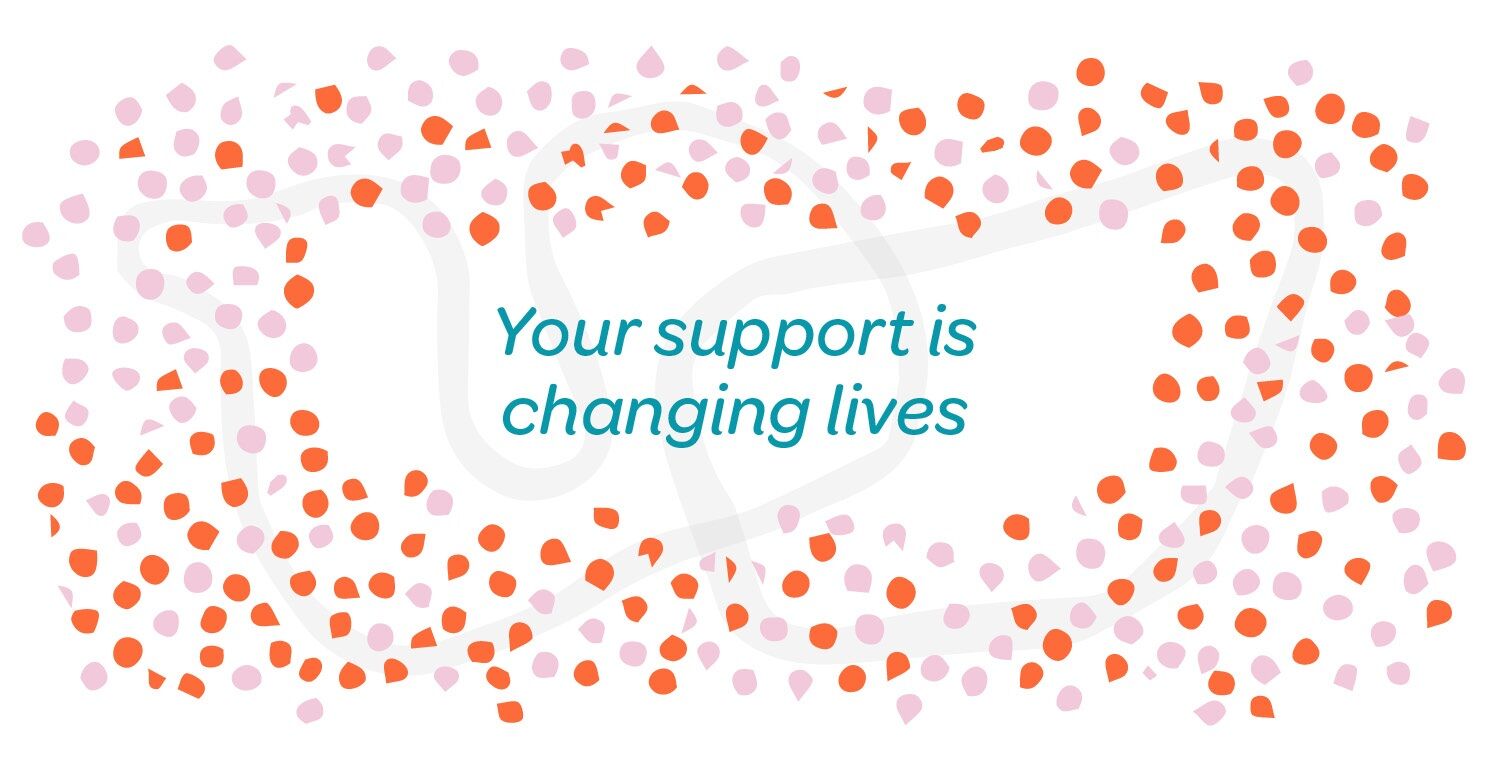Reimagine - March 2021
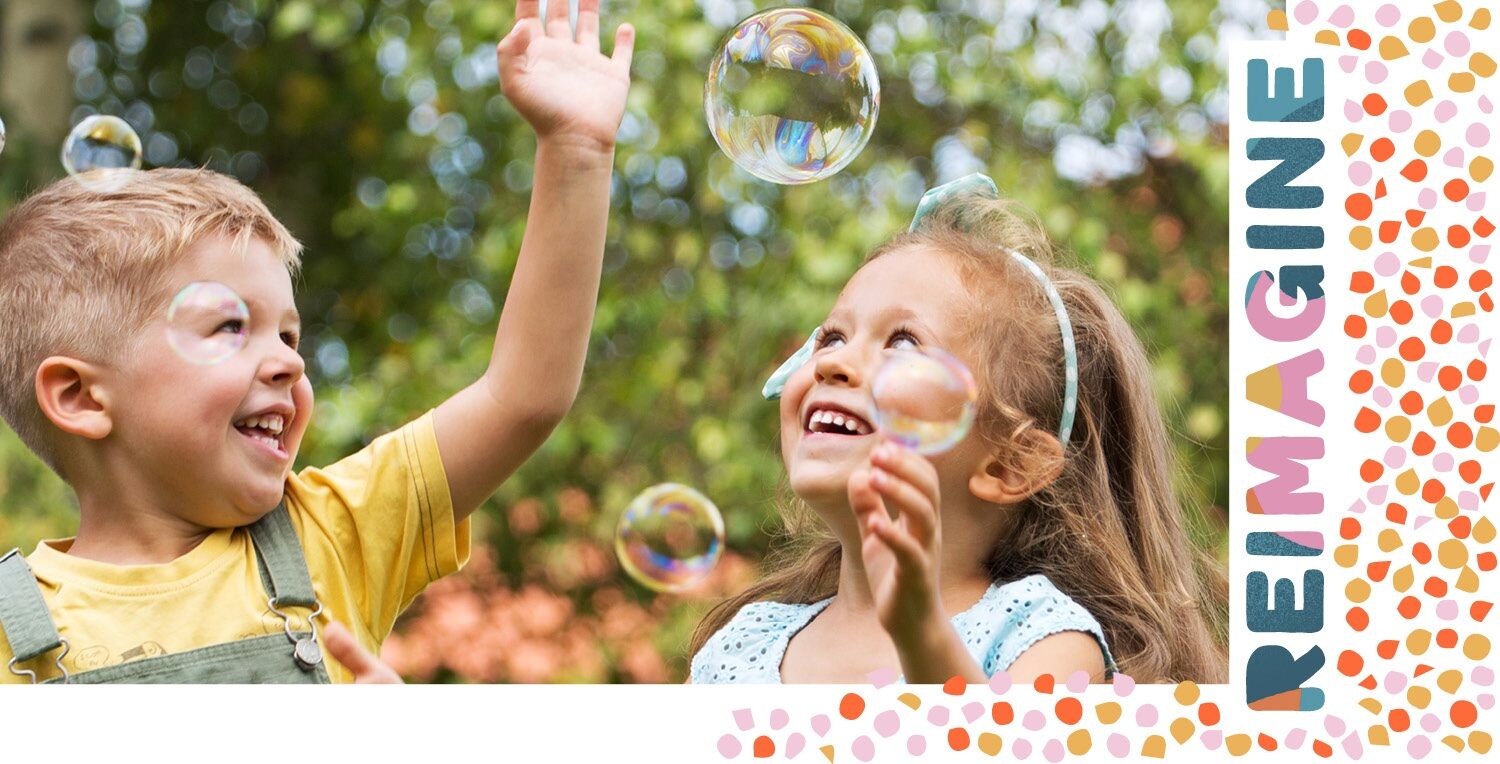
Message from our CEO

Last year brought many challenges and changes for us all; but for vulnerable children, young people and families, the impacts of COVID were even more heightened. Thanks to the generosity of people like you, we adapted quickly and continued to support the people we work with to be safe, thriving and hopeful.
In this edition of Reimagine, you’re invited to learn more about the Berry Street School and how it creates a flexible and stable learning environment for our students. You’ll meet one of our dedicated teachers and therapy dog, Lochie, who provides emotional support to students, parents and staff members on campus.
You may have heard of our flagship evidence-based program, the Teaching Family Model (TFM). To help bring this innovative way of caring for children and young people to life, we explore the best things about living in a TFM home, from the perspective of 13-year-old Elijah*.
I’m also eager to share some news with you: we were very proud to launch our first Reconciliation Action Plan (RAP) in February. At Berry Street, reconciliation is 365 days a year and our RAP outlines our commitment to supporting an equitable Australia where Aboriginal and Torres Strait Islander peoples have the same life opportunities as all Australians.
And of course, as well as supporting children, young people and families across our many specialist programs this year, we’ll continue to advocate for early intervention and prevention. This will help children and families get the support they need so they can stay safely together.
With more than 35,000 people needing our services in the last financial year, your ongoing and loyal support is changing lives.
Thank you again – your generosity is truly making an impact.
Michael Perusco
Chief Executive Officer
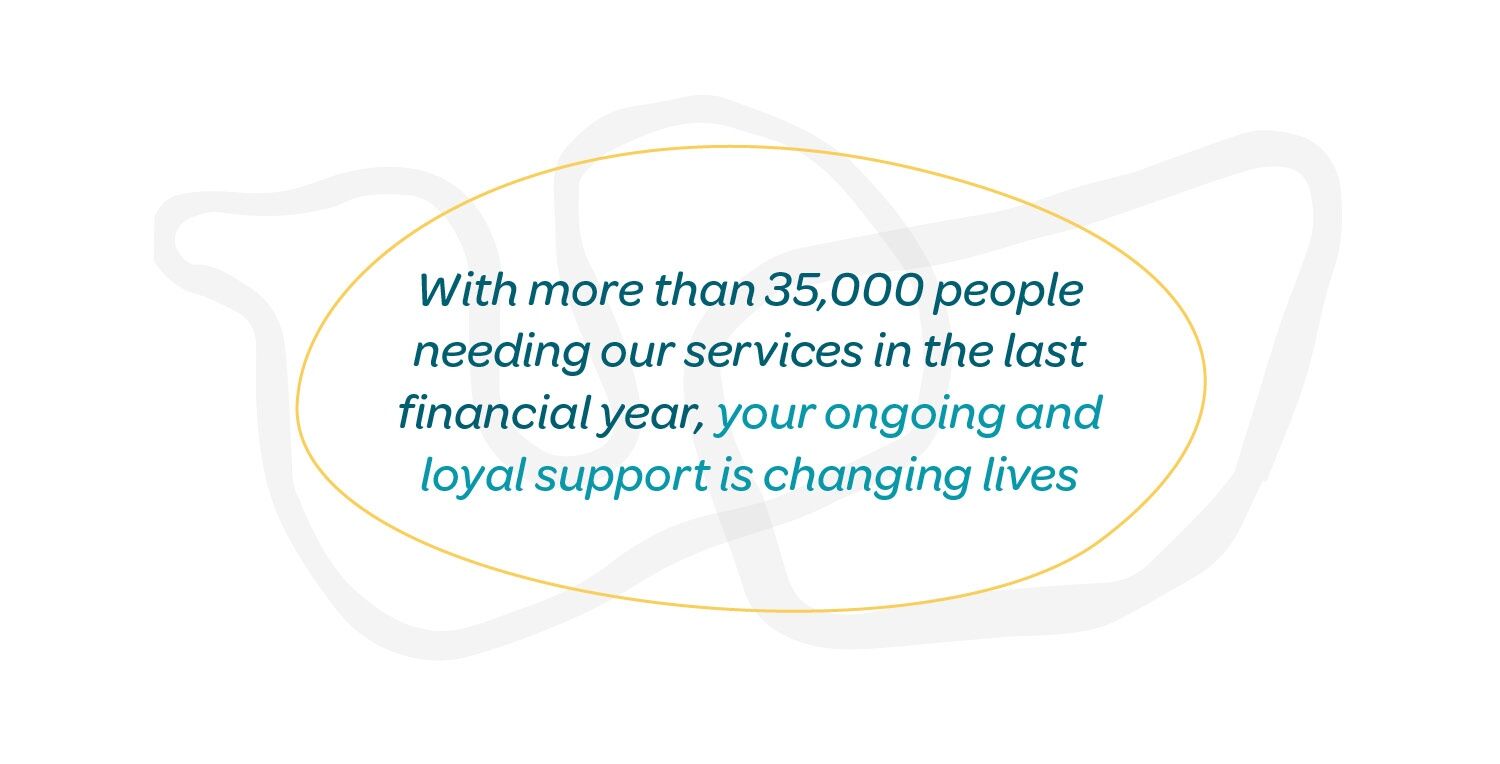
Berry Street School students embrace the new year
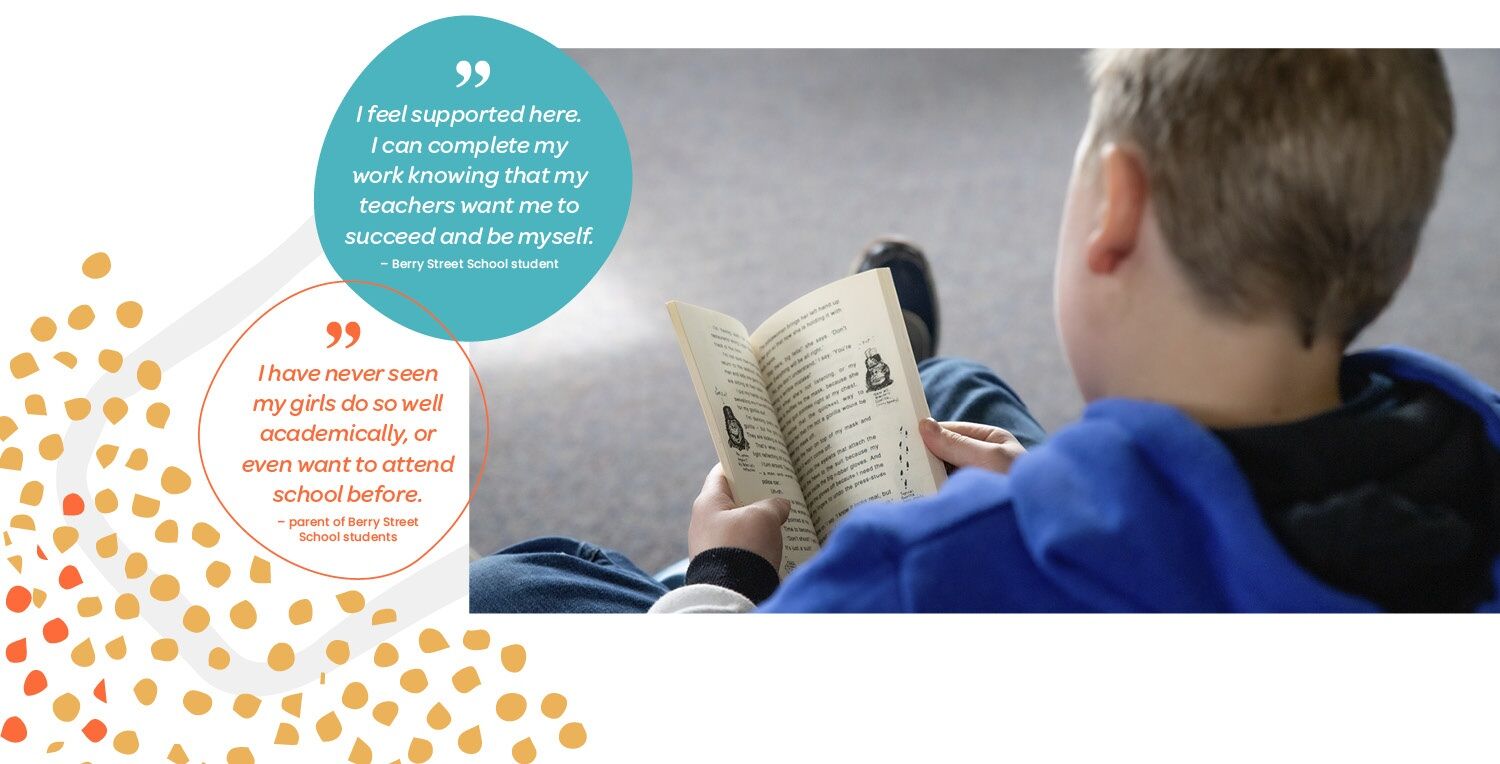
We were proud to see Berry Street School students return to their learning this year enthusiastic and hopeful. Teachers and families are committed to supporting our students to thrive, achieve and belong.
What makes the Berry Street School so special
The Berry Street School is unique. Students who have disengaged from mainstream school – often as a result of abuse, neglect and family violence - become passionate, committed learners once they’re given the specialist support they need to thrive.
Our specialist independent school supports 170 students across four campuses and provides flexible learning designed to meet students’ individual needs. Our school is designed around our very own trauma-informed learning approach - the Berry Street Education Model - to help create the stable and supportive environment that our students need.
Young people’s enthusiasm, creativity and intelligence shine through quickly at our school and they make big strides in their learning.
Exciting developments that will enhance student learning
Each year our school goes from strength to strength. This year:
- Students will increase the use of technology including iPads, continuing to learn in ways that work best for them. For example, rather than writing a book report, students can photograph the book and use a voice recording to share their thoughts.
- Students will have their own email accounts to help them build practical skills, such as how to organise their inbox and manage tone over email.
- Students are aiming high and challenging themselves, with more young people than ever taking a step up from foundation level to intermediate level Victorian
Certificate for Applied Learning (VCAL).
Thanks to your generous support, Berry Street students continue to thrive.
The Pawfect Team
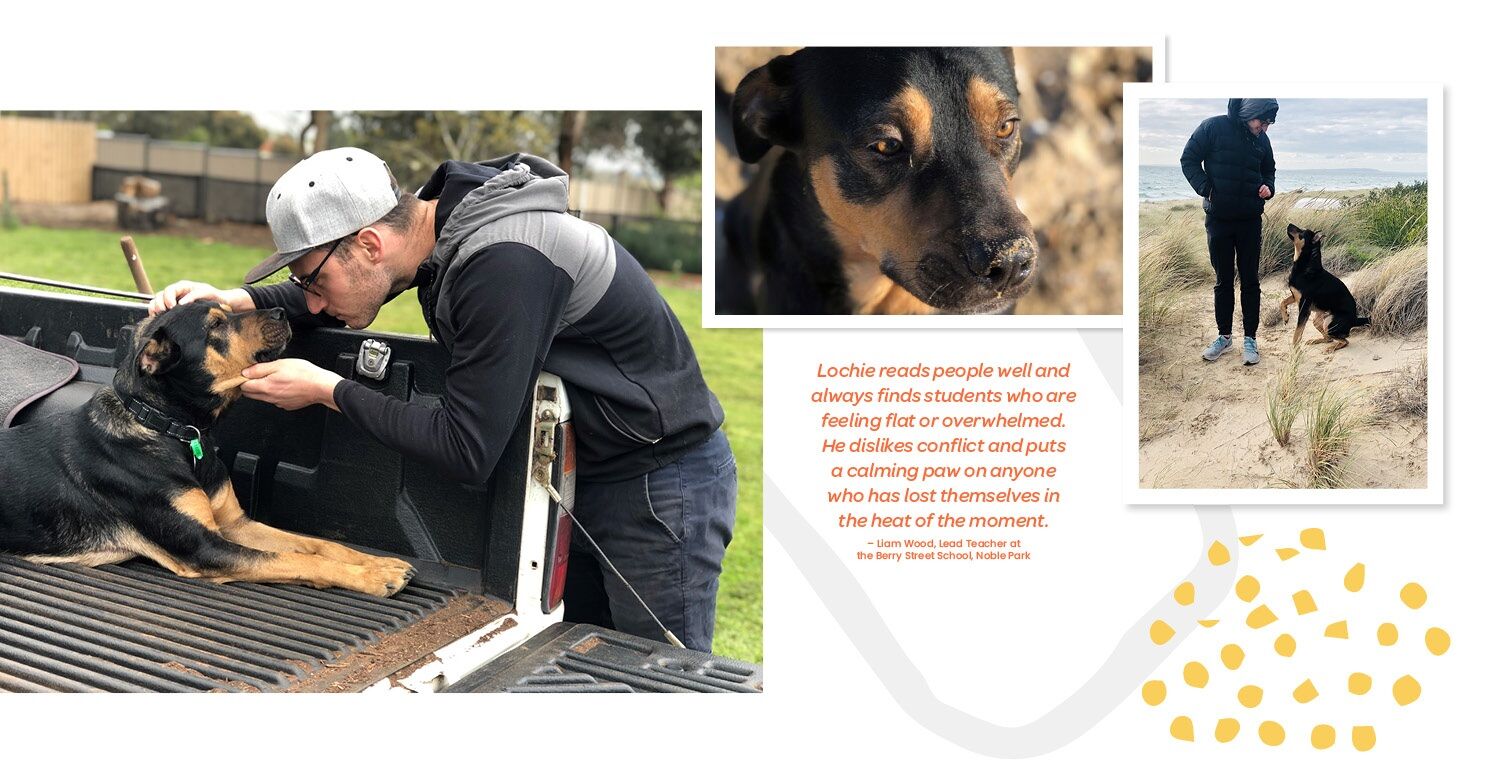
Meet Liam Wood and Lochie the therapy dog! Liam is Lead Teacher at the Berry Street School’s Noble Park campus and has been working with us since early 2019. Liam adopted Lochie not long after joining Berry Street. Lochie then went through therapy dog training, graduating in March 2020.
1. What is a typical day at work for you?
Lochie and I greet each young person on arrival and eat breakfast together before the day’s learning begins. At morning circle, students reflect on their values and character strengths before calming themselves through reading, with Lochie cuddling up to young people who are struggling. I then teach a wellbeing class with Lochie or we visit other classes, observing teaching and supporting student wellbeing.
2. What do you enjoy most about your job?
I enjoy making the school a place where students feel a sense of belonging and see their own success. I love seeing our students overcome their doubts, achieve their goals, and support one another. A highlight of my day is when teachers and students come together to celebrate success.
3. What are the main differences between working at the Berry Street School compared to a mainstream school?
After leaving mainstream education, I realised that our vulnerable young people often have far fewer support systems in their lives than students in mainstream schools. At the Berry Street School we support students in many aspects of their lives, working closely with carers and support services to rebuild those positive connections so they can thrive. Student wellbeing, self-regulation and supportive relationships are at the core of everything we do.
4. How does Lochie support students’ learning and wellbeing?
Lochie lived on the street for a year before he was rescued and found his way to me. He has a great heart but had experienced so much trauma and needed time to learn how to trust again. Students sense this in Lochie and connect with him instantly. Lochie reads people well and always finds students who are feeling flat or overwhelmed. He dislikes conflict and puts a calming paw on anyone who has lost themselves in the heat of the moment.
5. Do you have a message for our supporters?
Thank you for your contribution to our work and school. It’s a privilege to work with these young people and families, and we couldn’t help them succeed without your support.
Through Elijah's eyes
The best things about his Teaching Family Model home
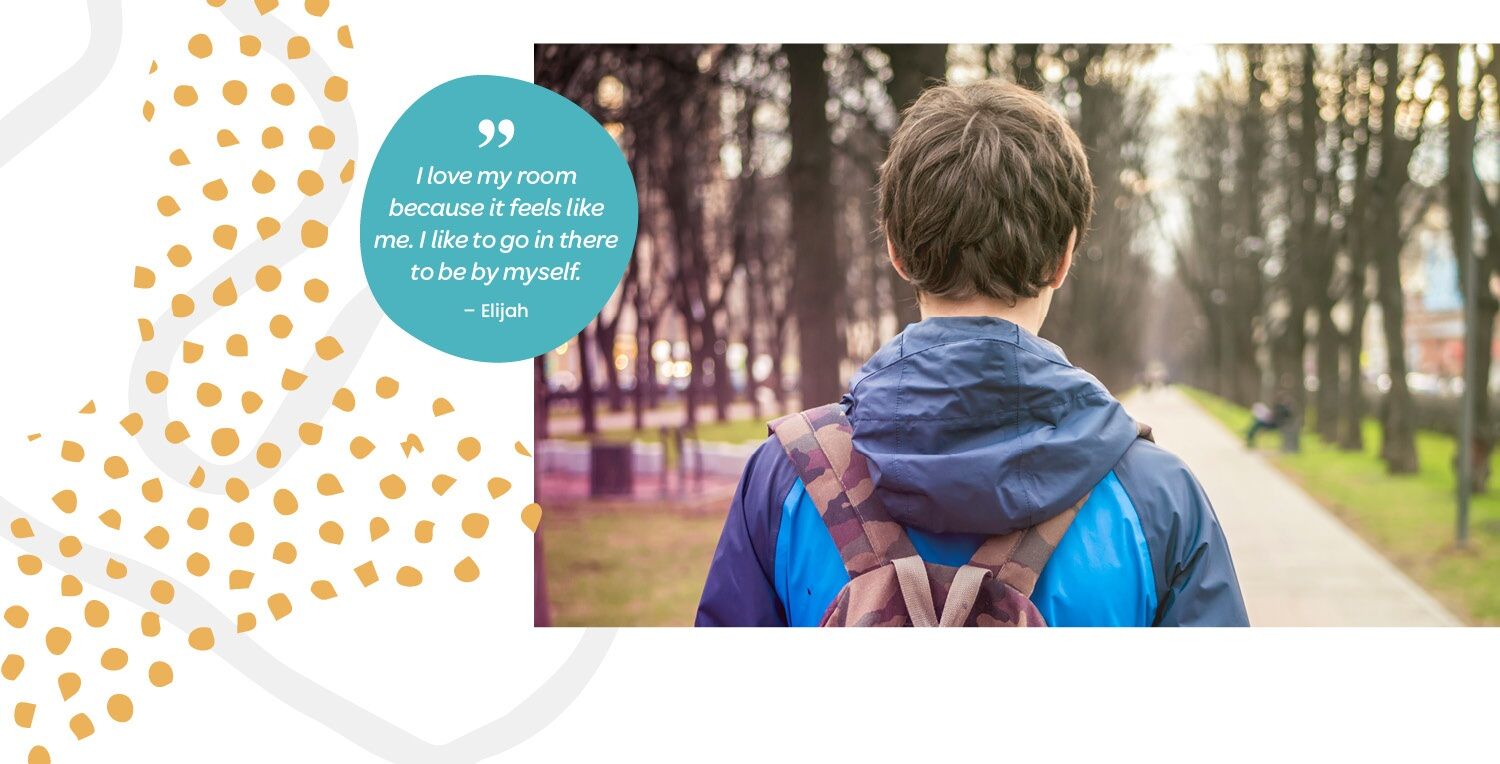
All children and young people have the right to feel safe, loved and valued. But for those who have experienced significant trauma, traditional out-of-home care (like foster and residential care) doesn’t always provide the right support. That’s why we offer the Teaching Family Model (TFM), an innovative way of caring for children and young people in a family-style setting.
TFM focuses on helping vulnerable children and young people build their strengths, problem-solving and leadership skills, so they can grow confidence and reach their full potential.
Elijah* is a 13-year-old who has been living in a TFM house for about a year and has begun to really settle in. Some of Elijah’s favourite things about living in the home are:
1. Calming spaces for reflection and focus: his bedroom and sensory room
With a green feature wall, new shelves and drawings on the walls, Elijah’s bedroom is as unique as he is. Elijah made the design decisions, giving him a sense of pride: “I love my room because it feels like me. I like to go in there to be by myself.”
There’s also a sensory room, a space the young people can use to calm and focus themselves. Elijah uses it to practise the ‘15 second rule’: when he feels upset, he distances himself here for 15 seconds rather than reacting immediately.
2. A chance to be a leader: chairing the family meeting
TFM uses family meetings to discuss house matters and grow problem-solving, listening and decision-making skills.
Elijah’s favourite role is meeting chair, commenting, “I like being chair because we get to decide important things together. I am fair and give everyone the chance to speak.”
3. Receiving praise: being recognised for his achievements
Routine and consistency are key to helping Elijah feel settled, and he has been great at following his Daily Plan. When praised for this, he reflected, “When Anita said I had been doing really well sticking to my daily plan, I felt so happy! I tried hard… Especially with going to bed on time.”
Lately Elijah has been taking inspiration from this Dr Seuss quote: “You have brains in your head and feet in your shoes. You can steer yourself in any direction you choose.”
*Name has been changed in the interest of privacy. The models and volunteers pictured are not connected to the case study.
Spotlight on early intervention
Did you know the number of Victorian children and families involved with child protection each year is the highest in Australia and growing much faster than the national average?
We are working to shift the child and family system towards early intervention and prevention so that families can stay safely together and address challenges before they spiral out of control.
Explore two of our key early intervention programs below.
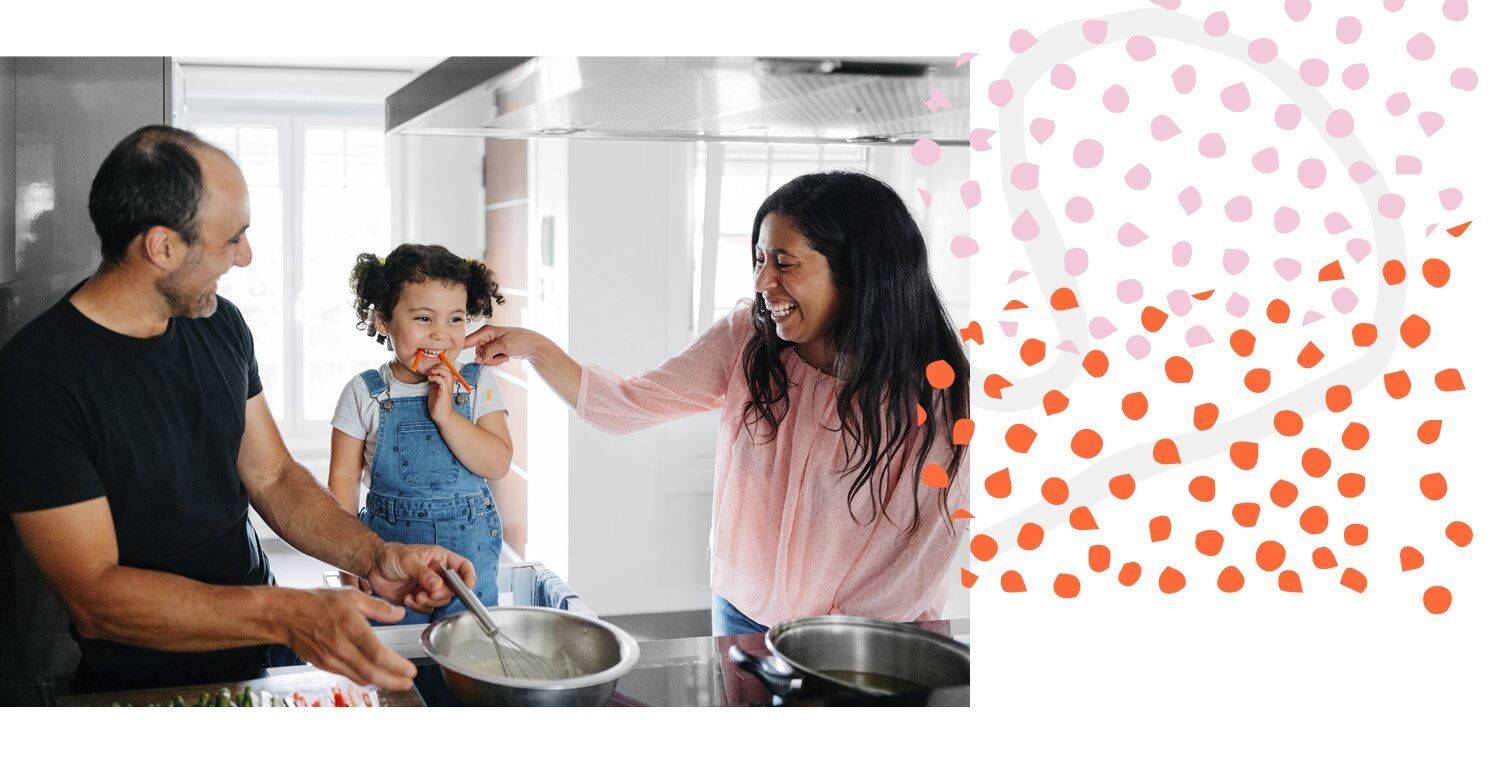
Multisystemic Therapy (MST)
Keeping young people safely at home
MST is a family and community-based model of treatment for young people at risk of entering or who have recently entered out-of-home care. It aims to keep young people living safely at home, in school and out of the justice system.
MST is effective because therapists not only work with the young person, but also with the networks around them (like family, school and neighbours). The family can also engage at times and in places that are convenient and comfortable for them.
SafeCare
Teaching skills for safe parenting
Launching later this year, SafeCare is an evidence-based program that supports parents with children aged 0 to 5 in their own homes. It encourages parents' positive interactions with their children, keeping their homes safe and improving their children’s
health.
Over three modules – health, safety and parent-child interaction – parents learn the skills they need to parent effectively and to stay safely together with their children.
Your support is changing lives
Thanks to the generosity of our supporters this year, more of the most vulnerable children, young people and families in our community can be safe, thriving and hopeful.
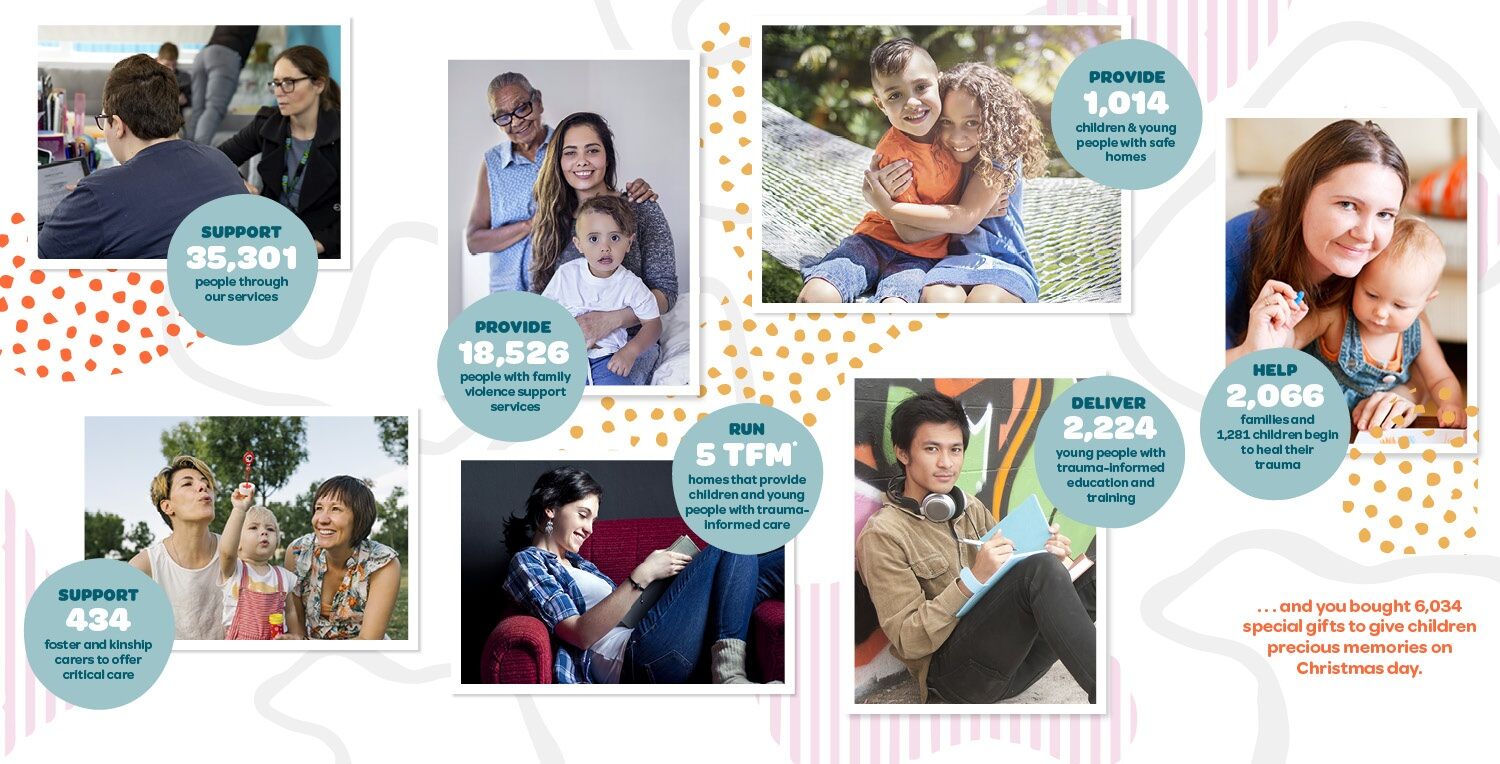
*TFM: Teaching Family Model, an innovative way of caring for children and young people in a family-style setting. Source: Berry Street Annual Report 2019-20
Make a donation to continue changing lives
